Covid-19: Second jabs 'accelerated' and Portugal to allow UK tourists
- Published
Here are five things you need to know about the coronavirus pandemic this Friday evening. We'll have another update for you tomorrow morning.
1. Second jabs to be accelerated for over 50s
Second vaccine doses will be accelerated for the over-50s and clinically vulnerable, the prime minister said, amid increasing concern over the India variant. The NHS will get in touch with people in those groups, who will now get their second dose eight weeks after their first, rather than 12. Boris Johnson said there was no reason to delay England's plans to ease lockdown for now, but the variant could "make it more difficult" in June. He said the India variant was thought to be more transmissible than others, but it was unclear by how much. But there's no evidence to suggest vaccines are less effective at protecting against severe illness from the India variant.
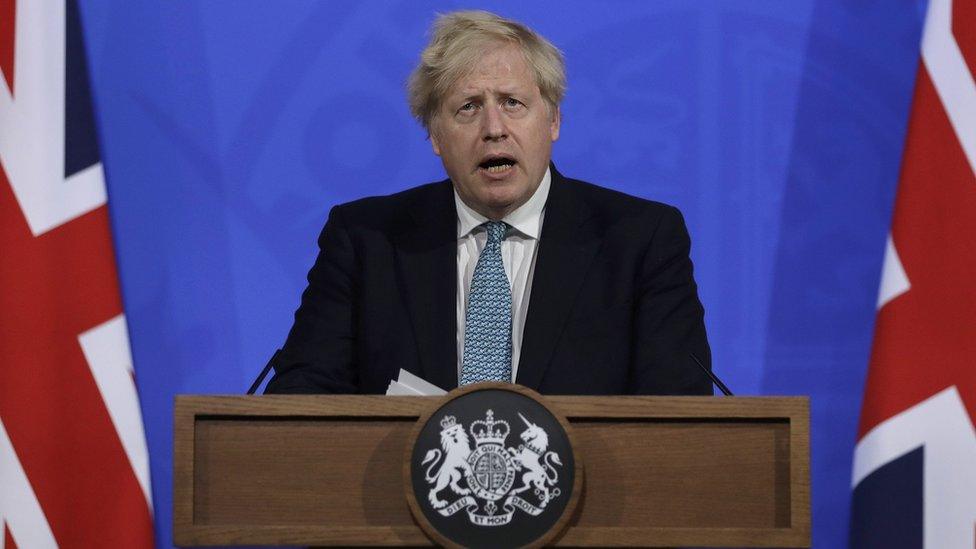

2. UK tourists allowed in Portugal from Monday
British tourists will be allowed to enter Portugal from next Monday, the Portuguese authorities said. Portugal is on the UK's "green" list for unrestricted travel from then, but there had been confusion over whether the Portuguese would reciprocate. The government in Lisbon said anyone arriving would need to have produced a negative PCR test result within the previous 72 hours. Meanwhile, Greece has launched its tourist season, lifting most remaining restrictions on movement and declaring "we are putting the lockdown behind us".
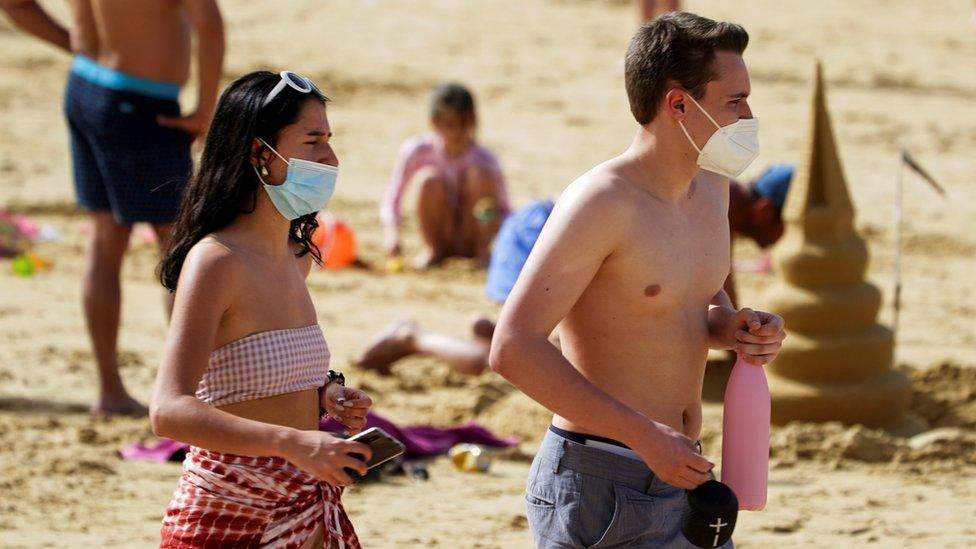

3. Glasgow and Moray to keep tighter level 3 restrictions
Glasgow and Moray will remain under level three Covid restrictions for at least another week, First Minister Nicola Sturgeon announced. She said the "difficult" decision to retain the existing regulations in Glasgow came after a rise in cases in the city. The rest of mainland Scotland will drop down to level two next week, where up to six people from three different households will be able to meet inside each others' homes. Most islands will be placed in level one.
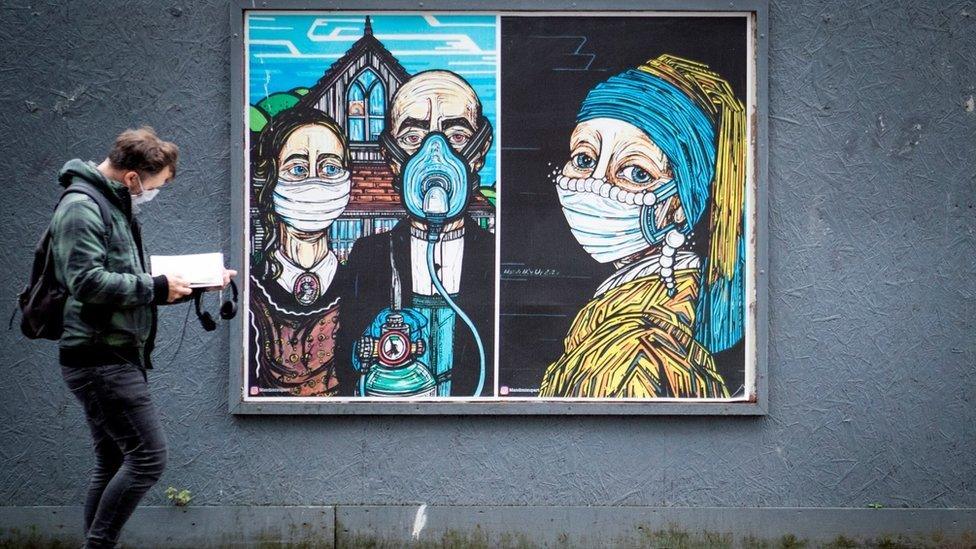

4. Second year of pandemic set to be more deadly - WHO
The World Health Organization (WHO)'s chief Tedros Adhanom Ghebreyesus said the second year of the pandemic is set to be more deadly than the first, with the crisis in India of huge concern. He urged rich countries to reconsider plans to vaccinate children and instead to donate jabs to the international Covax scheme for poorer countries. He was speaking at a virtual meeting in Geneva, which will itself begin vaccinating everyone over 16 from next week. Take a look at the effort to share international vaccines around the world here.
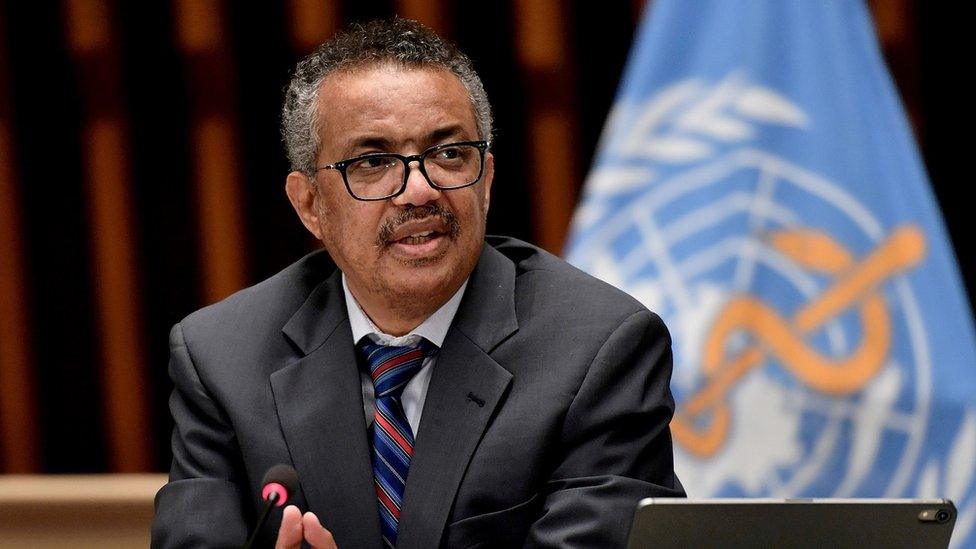

5. Socialising after lockdown: Why is it so exhausting?
If you've been feeling particularly overwhelmed after socialising since coronavirus restrictions started to ease, you're not alone. What some people call a "social hangover" is the feeling of exhaustion after depleting all your energy. According to clinical psychologist Dr Julie Smith, this is expected after a long period of lockdown. "What you do every day becomes your comfort zone," she tells Newsbeat. It's your brain's way of saying "we haven't done this in a while, stay alert and be careful. That's just your survival response".
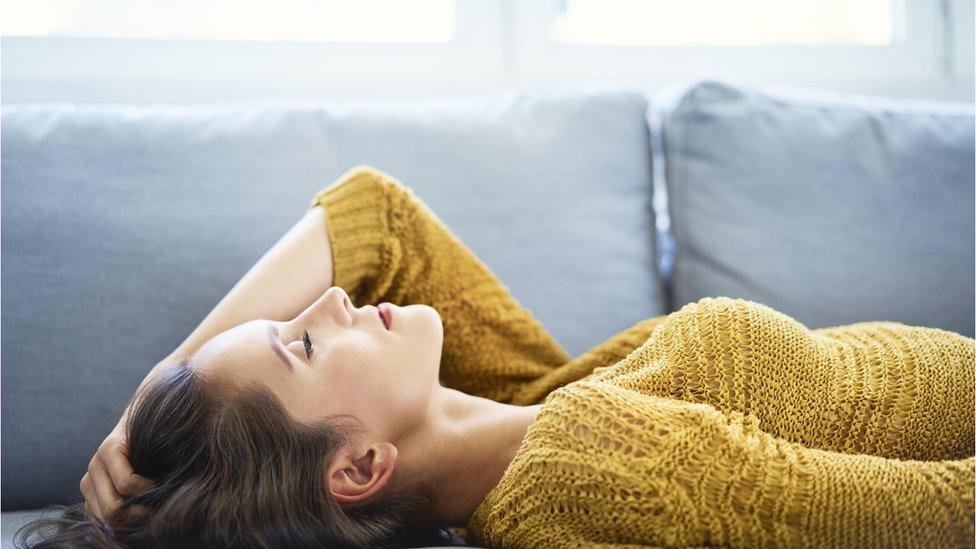

And there's more...
The advice on hugging in England and Scotland is changing from Monday, find out how to do it safely here.
Find further information, advice and guides on our coronavirus page.


What questions do you have about coronavirus?
In some cases, your question will be published, displaying your name, age and location as you provide it, unless you state otherwise. Your contact details will never be published. Please ensure you have read our terms & conditions and privacy policy.
Use this form to ask your question:
If you are reading this page and can't see the form you will need to visit the mobile version of the BBC website to submit your question or send them via email to YourQuestions@bbc.co.uk, external. Please include your name, age and location with any question you send in.

A ROMANCE BEGINS IN LOCKDOWN: Stephen Fry narrates U.ME, a new musical!
FIVE OF THE MOST MEMORABLE FA CUP MOMENTS: How many do you know?
